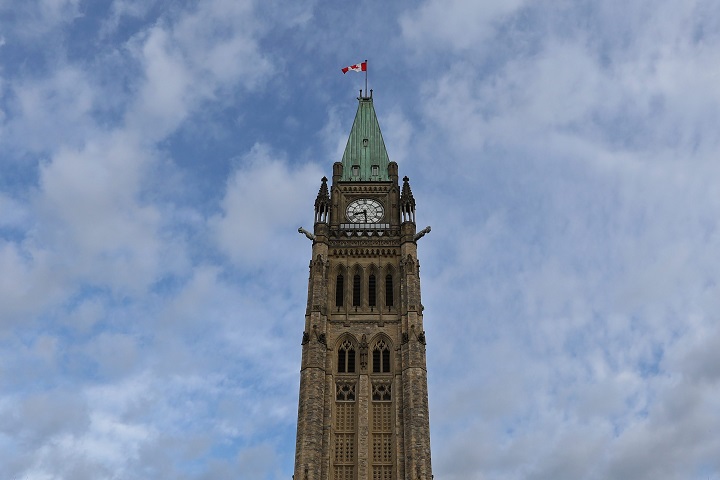TORONTO – The federal government will be testing whether hiding the names of job applicants would improve its hiring practices, in what it calls an effort to strengthen diversity and inclusion in the public service.

The Public Service Commission of Canada project, unveiled Thursday at Toronto’s Ryerson University, will compare the results of traditional screening methods with name-blind recruitment.
The practice consists of removing names and other identifying information such as email addresses and country of origin from job application forms in order to combat bias against people of diverse ethnic and cultural backgrounds.
READ MORE: Federal workers union says niqab ban would violate collective agreement
“We believe that the public service should reflect the idea that our diversity is our strength and should be a model of inclusion for employers across Canada and around the world,” said Scott Brison, president of the Treasury Board.
The experiment will involve some externally advertised jobs in six federal departments, including National Defence, Global Affairs and Immigration, Refugees and Citizenship. A report on the findings is expected in October.

Get breaking National news
Brison said the pilot project is meant to identify best practices before rolling out the technique throughout the public service, which he said the government aims to do before the end of its mandate.
READ MORE: Trudeau government, Ontario to invest $200M into Ford’s Canadian operations
- ‘Something just went off’: Canadians in Middle East describe ‘surreal’ Iran missile strikes
- ‘At first I cried’: How Iranian Canadians are reacting to the U.S. strikes in Iran
- Khamenei’s death met with ‘jubilation’ among Iranian-Canadians: Liberal MP
- Queen’s University students stranded in Doha after Iran attack shuts down airspace
He said name-blind recruitment has already been adopted in some universities as well as several European organizations, such as the British civil service.
Many orchestras made the switch to blind auditions, in which musicians play hidden by a screen, in the 1970s and 1980s, which led to a dramatic increase in the number of women hired, studies have shown.
A 2012 study by University of Toronto researchers found job applicants with English-sounding names were 35 per cent more likely to receive a call back than those with Indian or Chinese names, which they said suggested an unconscious bias.
READ MORE: Federal government warned about robots taking more Canadian jobs
Philip Oreopoulos, one of the study’s authors, said it benefits employers to remove any barriers that could prevent them from hiring the best people.
Oreopoulos, a professor of economics and public policy at the University of Toronto, said there is “general interest” in moving towards name-blind hiring and the government project may give it a boost.
“I do think there may be some momentum here and the fact that the public sector is going to try this out is promising and may attract interest in employers to see how that goes,” he said.
READ MORE: Canadians with Disabilities Act to focus on employment: minister
Other studies have found that name discrimination was more prevalent at smaller organizations, the professor said, adding companies that can afford to have a large human resources department may be in a better position to curb that kind of behaviour.
The federal government said there is no evidence of bias in its current hiring practices.







Comments
Want to discuss? Please read our Commenting Policy first.